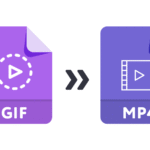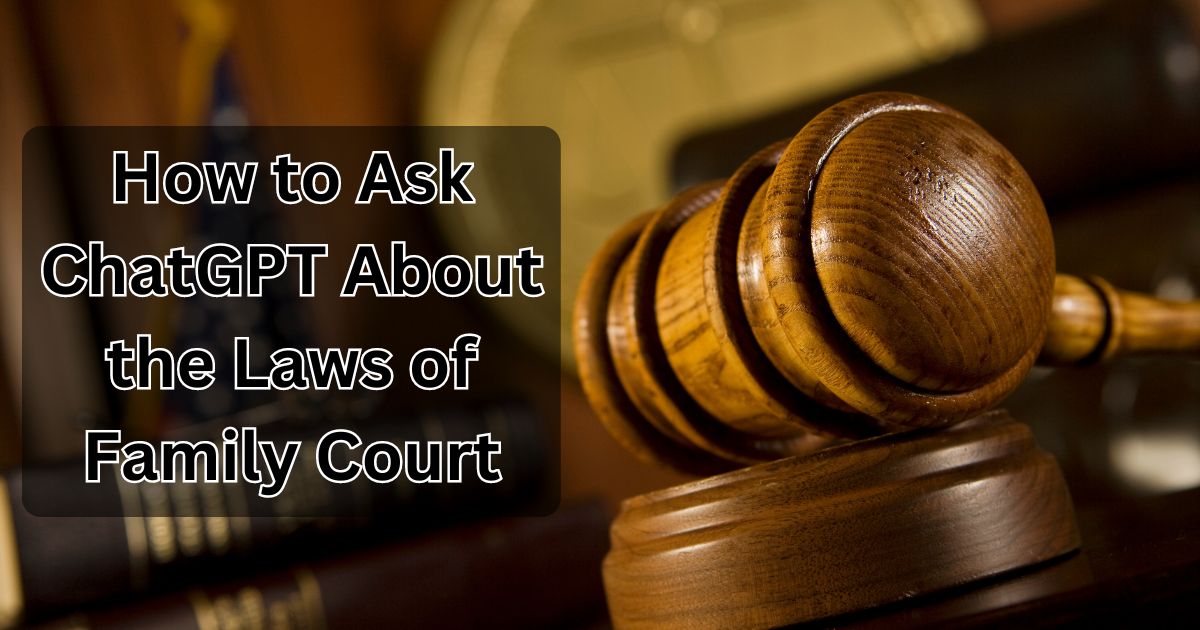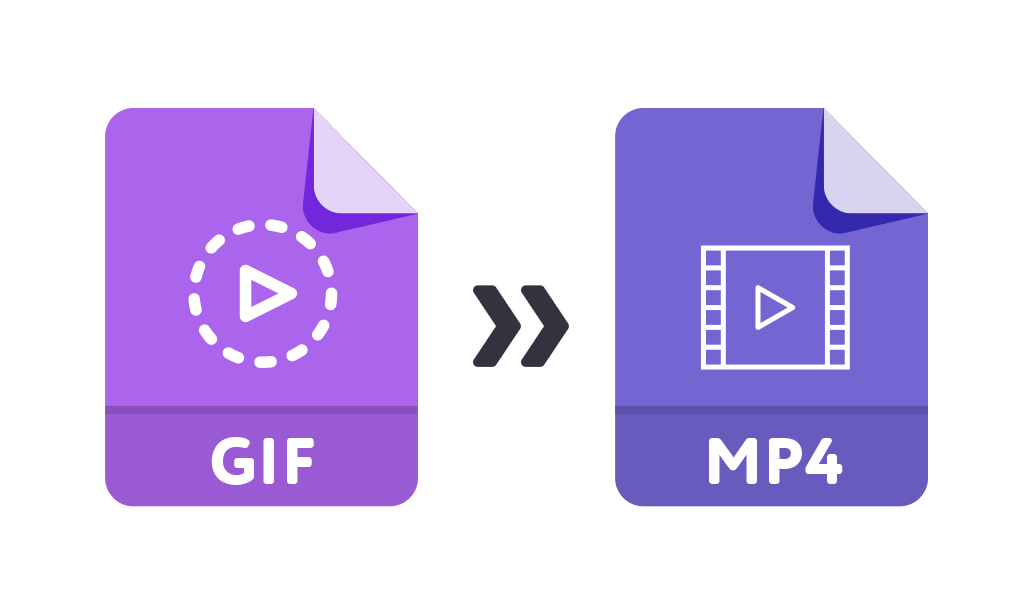Family court deals with some of the most personal and sensitive matters in the legal system, including divorce, child custody, and child support. As these issues can be complex and emotionally charged, individuals often seek guidance to navigate them effectively. In recent years, artificial intelligence, like ChatGPT, has emerged as a valuable tool for answering questions and providing information about legal matters. This article explores how to ask ChatGPT about the laws of family court, the benefits and limitations of AI in this context, and when to seek professional legal advice.
Introduction
Overview of Family Court Laws
Family court serves a critical role in addressing legal issues that affect family relationships. These courts handle a variety of cases, including divorce, custody disputes, child support, and domestic violence. The laws governing family court proceedings are designed to ensure that decisions are made in the best interests of children and families. Each jurisdiction may have specific rules and procedures, but the overarching goal remains the same: to provide fair and just resolutions to familial conflicts.
Understanding family court laws is crucial for anyone involved in these proceedings. It can help individuals better prepare for their cases and make informed decisions. While legal professionals are typically the go-to source for detailed advice, tools like ChatGPT can provide valuable preliminary information and guidance on general legal concepts and procedures.
Role of AI in Legal Inquiries
Artificial intelligence, such as ChatGPT, has revolutionized the way people access information. With the ability to process and generate human-like text, AI can answer questions, provide explanations, and even offer guidance on complex topics. In the context of legal inquiries, ChatGPT can be particularly useful for providing general information about family court laws and procedures.
However, while AI can assist with basic queries and provide an overview of legal concepts, it is important to recognize its limitations. ChatGPT is not a substitute for professional legal advice and should be used as a supplement to, rather than a replacement for, consultation with a qualified attorney. Understanding both the potential and the limitations of AI can help users make the most of these technological advancements.
Understanding Family Court
What is Family Court?
Family court is a specialized branch of the judicial system that deals with issues related to family relationships. This court is tasked with resolving disputes and making decisions that impact family dynamics, such as divorce settlements, custody arrangements, and child support obligations. Unlike criminal or civil courts, family court focuses on matters that involve personal relationships and domestic issues.
Family court judges have the authority to make legally binding decisions that affect the lives of individuals and families. These decisions are made based on the evidence presented and the laws governing family matters in the jurisdiction. Understanding how family court operates can help individuals navigate their cases more effectively and ensure they are prepared for the legal process.
Common Cases Handled in Family Court
Family court handles a wide range of cases, each with its own set of legal requirements and procedures. Common cases include divorce, where the court determines the division of assets and responsibilities; child custody, where decisions are made regarding the living arrangements and parenting responsibilities for children; and child support, where the court establishes financial obligations for the support of children.
In addition to these primary cases, family court may also address matters such as spousal support, domestic violence, and adoption. Each case type has its own legal standards and procedures, making it important for individuals to understand the specific rules that apply to their situation. Knowledge of these common cases can help individuals prepare for their court proceedings and seek appropriate legal advice.
Why Use ChatGPT for Legal Questions?
Advantages of Using AI for Legal Queries
Using AI tools like ChatGPT for legal questions, including how to ask ChatGPT about the laws of family court, offers several advantages. One of the primary benefits is accessibility. ChatGPT is available 24/7 and can provide immediate responses to queries, making it a convenient resource for those seeking information outside of regular office hours. Additionally, AI can offer cost-effective solutions for obtaining general legal information, which can be particularly beneficial for individuals who may not have the financial means to consult a lawyer for every question.
Another advantage of using ChatGPT is its ability to process and summarize large amounts of information. This can help users quickly understand complex legal concepts and get a general overview of family court laws. By providing a starting point for further research, AI can empower individuals to make more informed decisions about their legal matters.
Limitations of AI in Legal Advice
Despite its advantages, ChatGPT has limitations when it comes to providing legal advice. AI cannot offer personalized legal counsel or interpret laws in the context of individual cases. Legal matters are often nuanced and require a thorough understanding of the specific facts and circumstances involved, which AI may not be able to fully grasp.
Additionally, ChatGPT’s responses are based on the information available at the time of training and may not always reflect the most current legal developments or jurisdiction-specific rules. As a result, it is essential to use ChatGPT as a supplementary tool and seek professional legal advice for tailored and up-to-date guidance.
Also Read: Top 10 AI Solutions in the Real Estate Sector in Pakistan
Preparing Your Question
Identifying Specific Legal Issues
Before asking ChatGPT about family court laws, it is important to identify the specific legal issue you need help with. Family law encompasses a broad range of topics, and understanding your precise concern can help you formulate a more effective query. For example, if you are dealing with a child custody dispute, you may want to ask about the factors that courts consider when making custody decisions.
By narrowing down your focus, you can receive more relevant and targeted information. Clearly defining your legal issue will also help you understand whether ChatGPT’s responses are sufficient or if you need to seek further assistance from a legal professional.
Formulating Clear and Concise Questions
To get the most out of your interaction with ChatGPT, it is important to formulate clear and concise questions. Ambiguous or vague queries may result in general or incomplete answers that may not fully address your concerns. When crafting your question, be specific about the information you are seeking and provide any relevant context.
For example, instead of asking, “What are the laws about divorce?”, you could ask, “What factors does a family court consider when dividing assets in a divorce case?” This approach will help ChatGPT provide more focused and useful information, allowing you to better understand the legal concepts related to your situation.
Crafting Effective Questions for ChatGPT
How to Frame Your Query About Family Court Laws
When asking ChatGPT about family court laws, framing your query effectively is crucial for obtaining useful responses. Start by clearly stating the legal topic or issue you are interested in. Provide any relevant details or context that may help ChatGPT understand your question better.
For instance, if you are inquiring about child support, you might ask, “How does a family court determine the amount of child support in a divorce case?” This specific query will guide ChatGPT to provide information related to child support calculations and factors considered by the court.
Avoiding Ambiguity and Misunderstanding
To avoid ambiguity and ensure that you receive accurate information, make sure your questions are straightforward and well-defined. Avoid using jargon or complex legal terms unless necessary, and provide context to clarify your query.
For example, instead of asking, “What are the rules for custody?”, you might ask, “What are the criteria used by family courts to decide custody arrangements in a case where one parent is seeking primary custody?” This will help ChatGPT understand your specific concern and provide a more precise answer.
Using ChatGPT for General Information
Understanding Basic Legal Concepts
ChatGPT can be a valuable resource for understanding basic legal concepts related to family court. If you are unfamiliar with terms or procedures, you can ask ChatGPT to explain these concepts in simple terms. For example, you might ask, “What does ‘joint custody’ mean in a family court context?”
By gaining a general understanding of these terms, you can better navigate family court proceedings and make more informed decisions. ChatGPT can provide a starting point for further research and help clarify complex legal concepts.
Finding Relevant Resources
In addition to explaining legal concepts, ChatGPT can help you find relevant resources for further reading. If you need more detailed information about family court laws, you can ask ChatGPT for recommendations on books, articles, or official legal resources.
For example, you might ask, “Can you recommend any books or websites for learning more about family court procedures?” ChatGPT can provide suggestions that can help you deepen your understanding and prepare for your legal matters.
Case-Specific Inquiries
Describing Your Situation to ChatGPT
When seeking advice on a case-specific issue, such as How to Ask ChatGPT About the Laws of Family Court, it is important to provide ChatGPT with as much relevant information as possible. This can help the AI generate responses that are more tailored to your situation. Be clear about the details of your case, such as the nature of the dispute and any specific concerns you have.
For example, if you are dealing with a custody dispute involving relocation, you might explain, “I am seeking to relocate with my child, but my ex-spouse is opposing the move. What factors will the court consider in making a decision about relocation?”
Limitations in Providing Case-Specific Legal Advice
While ChatGPT can offer general guidance on case-specific issues, it is important to recognize its limitations. AI cannot provide personalized legal advice or make decisions based on the specifics of your case. For complex or unique situations, it is essential to consult a qualified attorney who can offer tailored advice and representation.
ChatGPT can help you understand general principles and procedures, but a legal professional will be able to analyze your case in detail and provide recommendations based on your individual circumstances.
Verifying the Information
Cross-Checking Legal Information Provided by ChatGPT
It is crucial to verify the information provided by ChatGPT, as AI responses may not always be accurate or up-to-date. Cross-checking the information with official legal resources or consulting a legal professional can help ensure that you are receiving reliable guidance.
For example, if ChatGPT provides information about custody laws, you should review the relevant statutes or consult a family law attorney to confirm the accuracy of the information and understand how it applies to your case.
Using Official Legal Resources
In addition to verifying information with ChatGPT, it is important to use official legal resources to gain a comprehensive understanding of family court laws. Official resources may include court websites, legal databases, and government publications.
By consulting these resources, you can access the most current and authoritative information on family court procedures and requirements. This will help you make informed decisions and ensure that you are following the correct legal protocols.
Ethical Considerations
Privacy and Confidentiality Concerns
When using AI tools like ChatGPT for legal inquiries, it is important to consider privacy and confidentiality concerns. Avoid sharing personal or sensitive information that could be compromised or misused. Instead, focus on general questions and provide only the necessary context for your inquiries.
For example, when asking about custody arrangements, you can describe the situation in general terms without revealing personal details. This will help protect your privacy while still obtaining useful information.
Ethical Use of AI in Legal Matters
Using AI ethically involves recognizing its limitations and understanding that it should not replace professional legal advice. AI can provide valuable information and guidance, but it is important to use it responsibly and supplement it with advice from qualified legal professionals.
Ensure that you are aware of the ethical considerations involved in using AI for legal matters, and avoid relying solely on AI for critical decisions. By combining AI insights with professional legal counsel, you can make well-informed decisions and navigate family court proceedings effectively.
Seeking Professional Legal Help
When to Consult a Family Law Attorney
While ChatGPT can offer valuable information, there are times when consulting a family law attorney is essential. If your case involves complex legal issues, significant financial stakes, or contentious disputes, it is crucial to seek professional legal assistance.
Signs that you may need an attorney include facing a challenging custody battle, dealing with substantial property division, or needing legal representation in court. A qualified attorney can provide personalized advice, represent your interests, and help you achieve the best possible outcome in your case.
How to Choose the Right Attorney
Selecting the right family law attorney is a critical step in navigating legal matters. Consider factors such as the attorney’s experience, expertise in family law, and track record of success. It is also important to choose an attorney with whom you feel comfortable and who understands your specific needs and concerns.
You can start by researching potential attorneys, reading reviews, and scheduling consultations to discuss your case. By carefully selecting a qualified attorney, you can ensure that you receive effective representation and support throughout your legal proceedings.
ChatGPT’s Limitations in Legal Advice
Understanding AI’s Role in Legal Guidance
While ChatGPT can offer general information and answer questions about family court laws, it is important to understand its role in providing legal guidance. AI can help explain concepts and procedures, but it cannot replace the expertise and personalized advice of a qualified attorney.
AI responses should be used as a starting point for further research and should not be relied upon as definitive legal advice. For complex or specific legal issues, consulting a legal professional is essential to ensure accurate and tailored guidance.
Navigating Complex Legal Issues
For complex legal issues that involve detailed analysis and specific legal interpretations, ChatGPT’s responses may not be sufficient. In such cases, it is important to seek professional legal advice to address the unique aspects of your situation and receive comprehensive support.
A legal professional can provide insights and strategies based on the specific facts of your case, whereas ChatGPT can only offer general information and guidance.
Updating Your Knowledge
Staying Informed About Changes in Family Law
Family law is subject to change, and staying informed about updates and developments is important for understanding current legal standards. ChatGPT can help by providing general information, but it is also essential to monitor legal changes through official resources and professional advice.
Regularly reviewing legal publications, court updates, and legislative changes can help you stay informed about any modifications to family court laws and procedures. This knowledge will ensure that you are aware of any new developments that may impact your case.
Utilizing ChatGPT for Ongoing Legal Education
ChatGPT can be a valuable tool for ongoing legal education by offering explanations of legal concepts and answering questions about family court laws. Use it to supplement your knowledge and gain a general understanding of legal principles.
However, remember that AI should be used in conjunction with other resources and professional guidance. By combining ChatGPT’s insights with expert advice and official information, you can continue to enhance your understanding of family law and make informed decisions.
Conclusion
In summary, How to Ask ChatGPT About the Laws of Family Court can be a valuable resource for understanding family court laws and procedures. By asking clear and specific questions, users can obtain general information about legal concepts and navigate family court matters more effectively. However, it is important to recognize the limitations of AI and seek professional legal advice for personalized guidance and complex issues.
While ChatGPT offers convenience and accessibility, it should be used as a supplementary tool rather than a replacement for professional legal counsel. By understanding how to effectively use AI for legal inquiries and when to seek expert advice, individuals can make informed decisions and successfully navigate the complexities of family court proceedings.
Frequently Asked Questions (FAQ)
How accurate is ChatGPT’s information about family court laws?
ChatGPT provides general information based on its training data and may not always reflect the most current legal developments. It is important to verify any information obtained from ChatGPT with official legal resources or a qualified attorney.
Can ChatGPT replace a family law attorney?
ChatGPT cannot replace a family law attorney. While it can offer general information and answer questions, it cannot provide personalized legal advice or representation. For complex legal issues, consulting a qualified attorney is essential.
How do I know if my question is well-formulated for ChatGPT?
To ensure your question is well-formulated, be specific and clear about the legal issue you are inquiring about. Provide relevant context and avoid ambiguous terms. This will help ChatGPT generate more accurate and useful responses.










